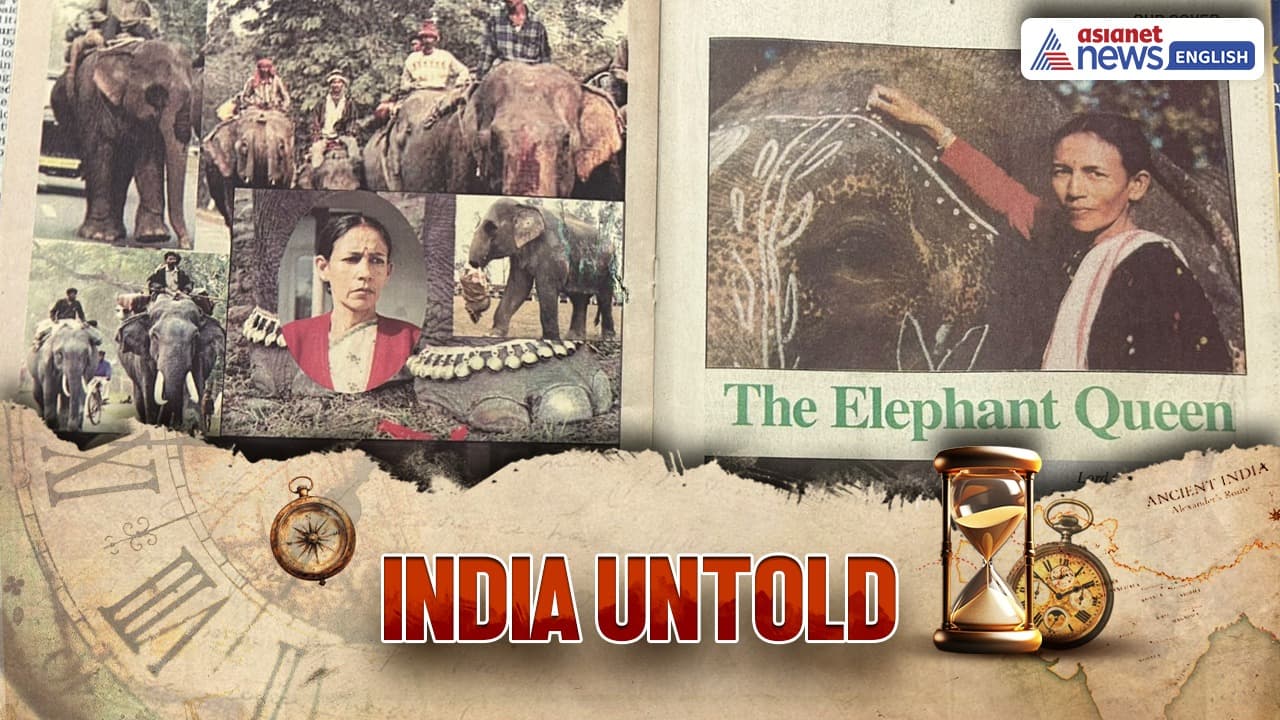Parbati Barua, fondly known as Hasti Kanya, became a Padma Shri awardee at the age of 69, celebrated as the country’s first-ever female mahout, a woman who has spent her life walking alongside elephants.
Parbati Barua, fondly known as Hasti Kanya, became a Padma Shri awardee at the age of 69, celebrated as the country’s first-ever female mahout, a woman who has spent her life walking alongside elephants. Born into Assam’s royal lineage, Parbati was never drawn to dolls or dainty games. Instead, her heart resonated with the wilderness. The daughter of the late Prakritish Chandra Barua, the last ruler of the Gauripur Rajahs, she inherited her father’s deep bond with elephants. Internationally revered for his expertise with the giants, he unknowingly sowed in young Parbati a lifelong passion for the majestic creatures.
Her tryst with destiny began at just 14, when she captured her first elephant in the Kachugaon forests of Kokrajhar. From that moment on, she defied tradition and, in 1972, stepped into a world that had always been ruled by men — becoming India’s first woman mahout. Since then, she has devoted her life to rescuing, taming, and caring for elephants.
Her daily life – bathing her elephants, riding through forests, training them, and even preparing hadiya, a rice-based delicacy that her pachyderms adore. “They [The elephants] love me because I understand their sentiments. One call and they all come running to me,” Parbati told India Today.
Her beloved elephant daughters — Lakshmimala, Aloka, and Kanchanmala — are not just companions but teammates in her perilous yet purposeful journey. “In my job, there are no retakes,” she often says. “Every time I go to the forests, I think of it as my last trip. But as a mahout, I can never retire.”
From guiding lost herds to taming rogue tuskers, Parbati’s expertise is sought by states like Bihar, Assam, and West Bengal. One of her most celebrated feats came in West Bengal’s Midnapore district, where she, along with her elephants and a band of mahouts, guided a herd of 50 disoriented elephants back to their migratory path after two weeks of relentless pursuit. Her adventurous spirit even drew global attention — the BBC chronicled her journey in the acclaimed documentary Queen of the Elephants.
Yet, despite her fame, she continues to live humbly — brushing her teeth with ash, sleeping on a thin mattress inside a tent, and keeping close her trade’s essential tools: ropes, chains, khukris, and stirrups.
When asked what fuels her lifelong bond with elephants, she offered a simple yet profound truth to Firstpost: “Love cannot be explained. Perhaps it’s because elephants are very stable, loyal, affectionate and disciplined.”
